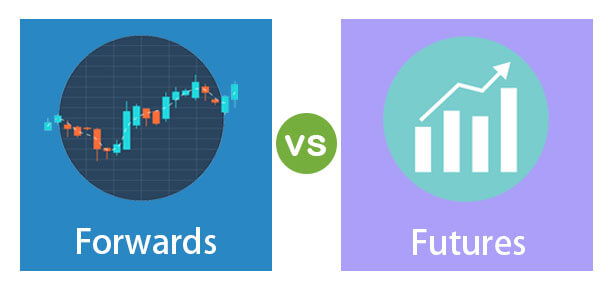A forward contract is one whose terms have been custom-tailored or negotiated between the buyer and the seller. In this contract, two parties agree to exchange the underlying security at a certain price at a future date. It differs somewhat from a futures contract, a standardized version of the future contracts. The futures contract is a pact made between two or more parties to purchase or dispose of the underlying financial instrument at a certain price and time at a later date.
The forward contracts are traded so over the counter, or by a financial institution and a customer, as opposed to being exchanged on an exchange like a futures contract.
People often misinterpret both contracts because, in each of them, the transfer of the asset occurs at a preset point in the future. However, if you look closer, you will recognize that these 2 contracts are different on several fronts. As a result, experts have included all the required information regarding the distinctions between forward as well as futures contracts in this post so that you could better comprehend them.
Difference between forward and futures contract
The following list highlights the key distinctions between forward & futures contracts:
- A forward contract is an agreement between two or more parties to purchase & sell the underlying assets at a particular price at the future date. A legally binding agreement between two parties to acquire and sell an item at a specific price & date with in future is known as either a future contract.
- A forward contract’s conditions are agreed upon by the seller and the buyer. Consequently, it is adaptable. On the other hand, a futures contract entails that the terms about the amount, date, & delivery are standardized.
- Because there isn’t a secondary market for these contracts, forward contracts are exchanged over the counter (OTC). A futures contract, however, is traded on a regulated securities exchange.
- Forward contracts have a maturity date on which they are settled. In contrast to futures contracts, which also daily marked the market, meaning that profits and losses are paid each day.
- Compared to something like a futures deal, a forward contract has a higher counterparty risk.
- Due to the confidential nature of something like the agreement, there are significant risks that one side may breach a forward contract. In contrast to a futures contract, when clearing houses were involved, the transaction is guaranteed; therefore the likelihood of default is nearly non-existent.
- In a forward contract, the size of such contract is determined by the conditions of the agreement, but in a futures contract, the amount is set.
- The maturity of something like the contract within the forward contract is decided by the contractual provisions, but it is set in the futures market.
- Collateral is not needed for forward transactions, but the initial margin would be for futures contracts.
- Forward contracts operate under their own rules. The securities exchange does not regulate contracts for futures.
According to the explanation above, it could be concluded that these two contracts have several differences. In comparison to a futures contract, the overall credit rating associated with a forward agreement is comparatively larger. Forward agreements can be utilized for hedging as well as speculating, but because the contract is customized, hedging is the ideal usage. On the other hand, the speculative use of futures contracts is acceptable.Purchasing and selling put and call options that have the same expiration date is the basis of the trading technique known as a butterfly option strategy

